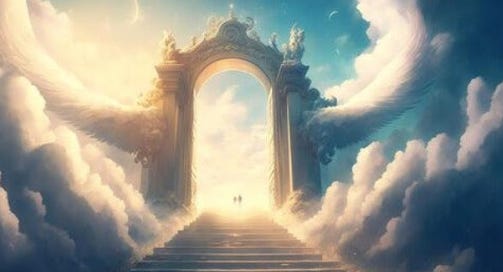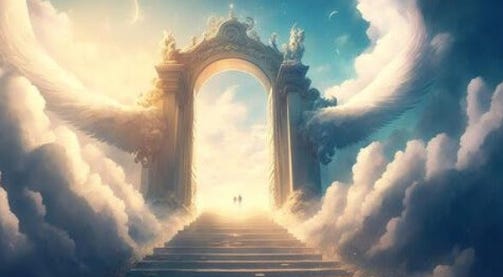We do love to worry.
It’s humanity’s #1 pass time:
But for what? It’s a waste of energy.
A far better question:
What if it all works out?
Welcome! If you’re reading this but haven’t subscribed you can do here:
Pascal’s Wager
To make the point let’s go to 17th century France.
There we find mathematician Blaise Pascal. And his famous wager.
Pascal tackled the thorny issue of whether or not to believe in God.
He argued it’s impossible to prove or disprove God; we are, therefore, gambling with our belief or non-belief. But we all must choose one.
His question, then, is which should one choose?
To him, as a Mathematician, it was a question of expected value: Which option benefits us most if right, and harms us least if wrong?
Pascal decided that if you believe, and you’re right, you’re infinitely rewarded in heaven. If you’re wrong, you lose nothing.
On the other hand, don’t believe and you gain nothing if you’re right and an eternity in hell if you’re wrong. Ouch.
To Pascal then it was clear; there was no rational option but to believe in God.
Lose-Lose
So how does this relate to worrying?
Well, we spent a huge amount of energy there. And it feels productive. Faced with some issue it feels necessary to spend hours tossing it around our mind.
But it’s not. And we don’t.
Either the thing we’re worrying about happens or it doesn’t. Just as God exists or he doesn’t.
Either it doesn’t happen, and the proceeding weeks worrying were in vain. The stress and anguish for nothing.
Michael de Montaigne once wrote: “There were many terrible things in my life and most of them never happened.”
Or it happens, and we’re no better off from all that worrying.
We lose either way.
Because time spent worrying is time spent not doing the thing that does help: Taking action.
The Rational Choice
We don’t have to be spectators in our lives.
Or to curse our luck as life blows us off course.
Because there’s always a path through; something to be done. And it’s only when we stop worrying that we can find that way.
It’s hard- I know. None of us choose to worry. Worrying happens.
But what happens next is up to us. It takes just a moment to snap out of it. To steel our resolve. To stop the catastrophising and decide to move forward.
What if it does all work out? What if the thing you’re worrying about don’t happen at all?
Only time will prove either way.
Until then we have a choice: Where to place our wager.
And there’s only one rational choice…
To stop the worrying, and ask:
What if this all works out?
And it just might.
What I’ve Been Reading 📚
Moby Dick by Herman Melville
It’s a remarkable book. Definitely an inspiration for Joyce’s Ulysses. But, fortunately, far more readable. Hilarious in places, with a wonderful group of characters. This mixed in with a notable amount of Cetology (the study of whales!). An enjoyable read.
Part of my book club with Hector Alexander. Next month is Brothers Karamazov do join in if you fancy it.
Period Power by Maisie Hill
Not a topic I’m intimately familiar with, I’ll be honest. But an important one considering it affects half the planet. Thoroughly enjoyed and learnt a lot. An enlightening read.
A Final Thought 💡
“The greatest mistake you can make in life is to be continually fearing you will make one.”
- Elbert Hubbard





Can I challenge this argument? It makes sense from a rational perspective, but it misses an important point. We don't choose to worry. No person ever wakes up and decides, having the choice, that they will become an anxious neurotic. Just like no one decides to have a headache.
We do worry, but to address it, deciding not to worry is as helpful as deciding to forget about the headache. It might even work for a few minutes, but it won't address the root of the issue. Instead, we need to address the reasons our moment-to-moment experience is worry, instead of, say, joy or contentment.
Likewise, with a belief in God. If the totality of life experiences and circumstances made it obvious to someone that there's something that they could refer to as God, it'll be so obvious, nothing will persuade them otherwise. If not, thinking "It makes sense, so I'll choose to believe" will have as much effect as someone who saw God deciding to tell themselves they haven't.